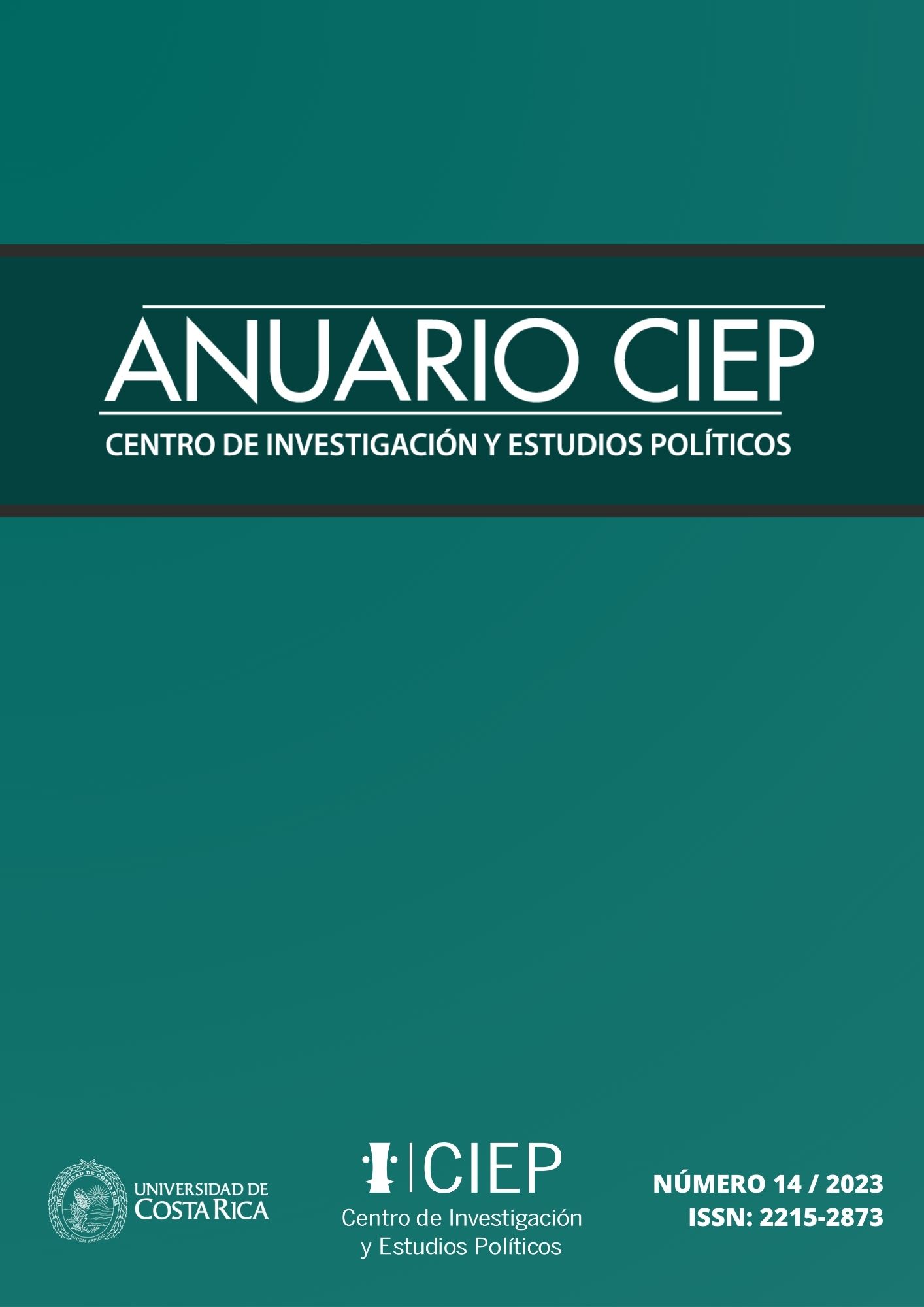Abstract
The article aims to analyze the 2022 Costa Rican elections, which featured the noteworthy victory of outsider Rodrigo Chaves and the electoral collapse of the Partido Acción Ciudadana (PAC) after two terms in government. This objective includes exploring their impact on the trajectory of the party system using data and indicators from elections dating back to 1994. The central argument posits that the country has entered a new configuration of the party system with characteristics vastly different from those established during the era of bipartisanship. These characteristics include high fragmentation, electoral instability, and a competition marked by low polarization and a rise in personalism.

This work is licensed under a Creative Commons Attribution-NonCommercial-NoDerivatives 4.0 International License.
Copyright (c) 2023 Carlos Adrian Cuitiño Burone

